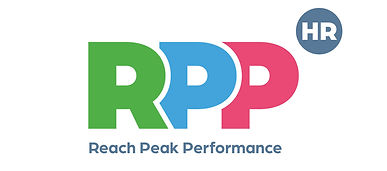Imposter Who? Edition 2 Self-Doubt and working on positivity
- Emma Bisseker
- May 3, 2024
- 6 min read

Welcome to the second and latest edition in the Imposter Who series, Self-doubt and Working on Positivity.
Two weeks ago I posted the first edition of the series and since then I’ve heard imposter syndrome referenced a number of times in various situations.
I am always fascinated by the views of people who either refer to having experienced it themselves or their view of others who do. I love hearing things from others perspective and by sharing we may just help each other.
In the first edition I shared some of the signs that you might recognise in yourself or someone else if imposter syndrome is present. The first was self-doubt and I wanted to explore this further as it really resonates with me. I've learnt a lot and worked hard on changing my mindset and I continue to work at it every day. Over time I've become more comfortable with focussing on the positive rather than the negative.
As is typical with self-doubt and imposter syndrome I would constantly compare myself to others and feel that I wasn’t any where near as good as anyone else in almost everything I did. I’d be continuously looking for something I could do that I could be good at, doing courses or further education to better myself which in itself is a positive but my motivation for doing it wasn't. Why did I feel I needed a formal qualification or certification to become credible; was I doing it for myself or what I thought others expected of me; why was I trying to validate what I was doing? Because I doubted everything! I couldn't even take positive feedback without feeling that the person providing it just felt sorry for me or that I was only doing what anyone else would do, or that one day I'd be found out - found out for what? I was doing the job and getting great feedback but it wasn't comfortable for me.
I found taking small steps to try to help shift my mindset and by being kind to myself I started to manage some of this self-doubt. I still have it but not to the degree I had and I don't let it get in my way.
Here's some of my thoughts what can be helpful:
Acknowledging successes
Firstly I looked at all of those courses and qualifications I'd gained and told myself that I had worked hard at them and I had achieved them. I reflected on my career, the roles I'd done and changes I'd made. I found it helped to keep my CV up to date with successes too. A lot of the time the acknowledgement was in private and that worked for me. Whilst recognition is important to me (although difficult for me to receive) I didn't need validation, I was working on validating myself. I did this for my personal life too, I looked at where I'd been and where I wanted to go. Take time to think about what you've achieved both work and personal life it all counts.
Set achievable goals
SMART goals help keep us focussed. Be realistic, set boundaries around your goals and really think about how you will achieve them. Specific, Measurable, Achievable, Realistic and Timebound. Set yourself up for success! Having focus on our outcomes can help keep us motivated. Check in with yourself as you work towards the goals, how's it going are you on track, recognise what you've achieved up to that point. Once you've completed the goal you can reflect on the goal and outcome, what went well, what did you learn, what didn't go so well, how did you feel as you worked towards the goal and what did it feel like when you achieved the goal? Appreciating too that sometimes we have to make adjustments, we hit challenges etc but we work through them. Give yourself credit once you've achieved your goal.
Performance Feedback
If you have performance reviews at work (which I really hope you do or at least discussions about how you're doing and what you need), plan yours ahead of the meeting; this can be the time you take to reflect on your successes ready to share them with your manager/performance coach. If you don’t feel comfortable talking about your successes, build confidence and practice. There’s no reason why you shouldn't be proud of what you’ve achieved. Having a good performance conversation can also help set your future SMART goals and development to help you achieve them. If during your performance discussion there are development areas that you or your performance coach/manager identifies don’t automatically jump to negative thoughts of not being competent or able to do it. Look at how you can turn it around to a strength, what do you need, what support is available to you?
Challenge negative self-talk and the inner voice
This can be really effective but I do appreciate that it can be a challenge particularly if you're on a spiral of negative self-talk that is impacting you daily, it's exhausting. You can apply some simple techniques to try to help. If a negative thought comes into your thinking you can chose to acknowledge it and then push it to one side. If it doesn't have a place in what you're thinking about or it doesn't make sense as to why it's popped into your head then push it out of your mind. If you want to answer the thought back, do that, for example 'I hear what you say but I don't agree and I am absolutely the right person to do this job'. I used to think it sounded silly to do this but the good thing is that all of this narrative is in your own head and you have control over what you do with it and how you respond to it, it's just working out your options and what works for you. Also, it's only you that can hear the conversation that's taking place.
Step out of your comfort zone
Really? I hear you ask. Yes! Personally this has worked for me and continues to. It reinforces that I can do anything I put my mind to. Do something that pushes you, something new or something you've always fancied doing but haven't because you didn't think you could. I've recently completed my first triathlon as well as volunteering at my local Park Run for the first time. I didn't think I'd ever do either. I didn't think I had the physical strength to do a triathlon or the confidence to volunteer. Why would I make a good volunteer, why would the team want me on board, what would people think when they saw me volunteering, they'd probably think I wasn't very good at it. I didn't let those thoughts enter my mind for long, I turned up the voice in my head and told those voices that I could do it, I would do it and I would enjoy it. The sense of achievement I had from both and the feeling of giving back to the community through volunteering was amazing. So many people thanked me on their way past and rather than me having any negative thoughts, I said very confidently 'you're welcome'. This might not sound like much but for someone with self-doubt and traits of imposter syndrome this was huge!
Practice self-care
This is something that so many of us don't find time to do. We're often too busy with work, helping others or doing chores and life gets in the way. Find time each day to work on you, whether that's exercise, reading, catching up with family and friends or learning something new. Look after your physical, mental and emotional health. We can't stick to a routine every day but if we set one out it soon becomes easier to work with or adapt when we need to. Take a walk at lunch, get away from the desk or at the weekend schedule some walk time with family. If journaling is your thing that can be helpful - think about a positive, think about a success you've had and how it made you feel.
There are many other ways in which you can start to change your mindset, they take time and repetition and practice but you are important so that investment shouldn't be questioned.
If your mental health or well-being is negatively impacted by any of the traits of Imposter Syndrome or you are feeling overwhelmed with self-doubt and it's impacting your ability to function daily please seek help. Counsellors and therapists can really help as can a coach. If at any point your coach feels that a therapist is more appropriate they will let you know; coaching and counselling are very different.
If anything resonates with you here and you feel that a coach could help, please do get in touch at www.reachpeakperformancecoaching.co.uk or info@reachpeakperformancecoaching.co.uk



Comments